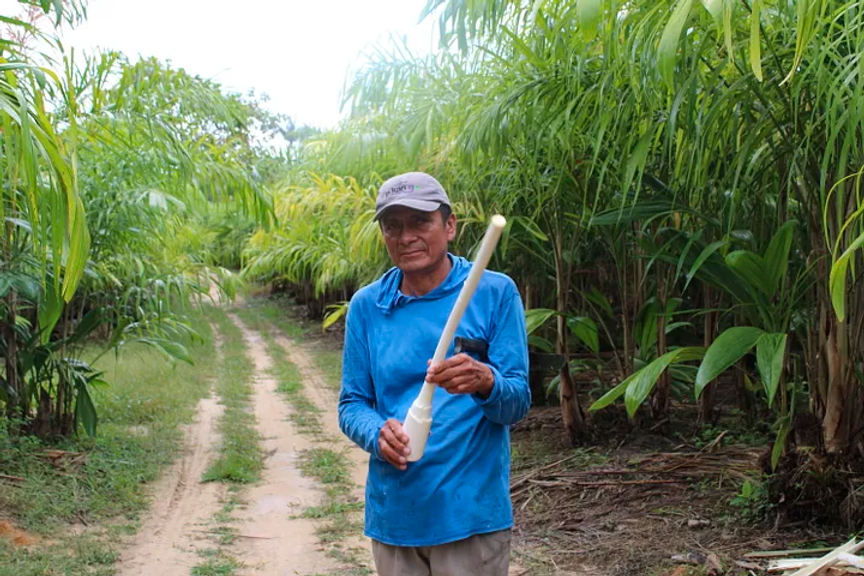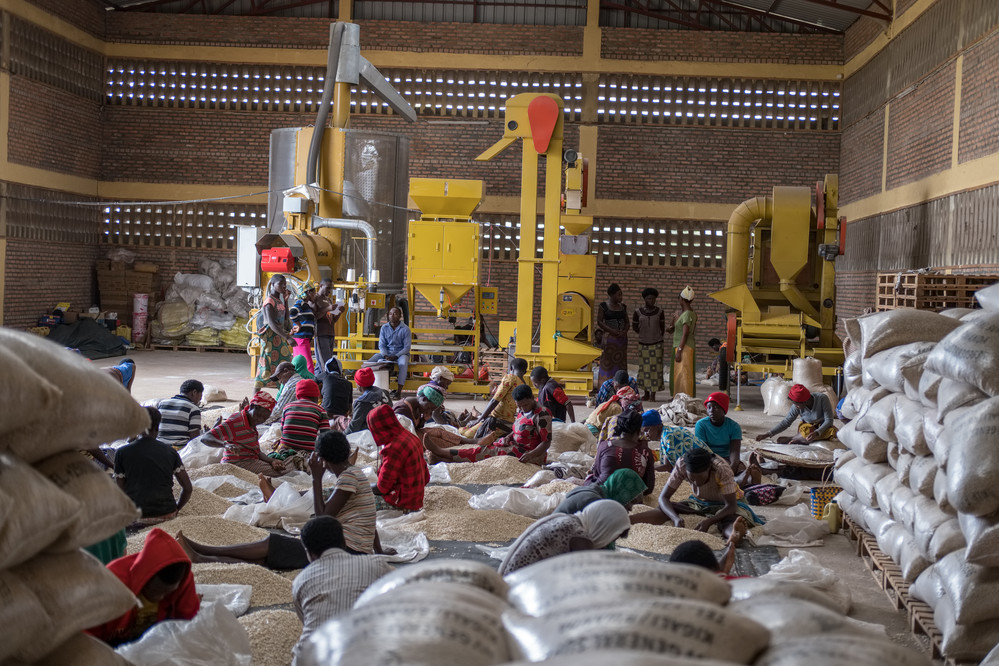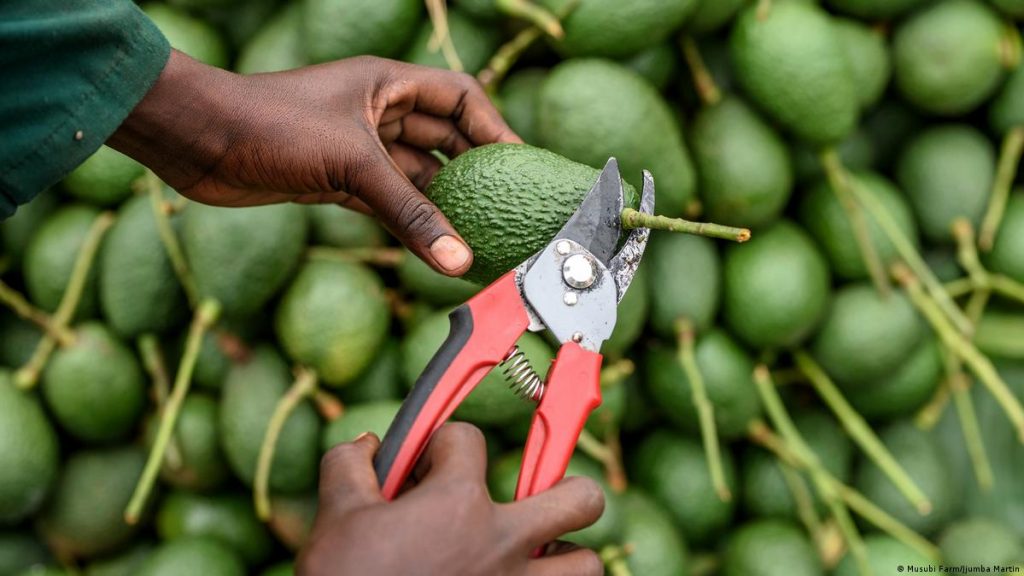Since CATALYZE Peru launched in May 2020, it has partnered with the private sector to design and include non-traditional stakeholders in development, with a focus on offering new financial products for small-scale producers in Peru’s Amazon region. In cooperation with financial institutions (FIs), anchor firms, business advisory service providers (BASPs), and local producers, CATALYZE Peru rolled out a blended finance approach that expanded FIs’ portfolios while channeling financing towards underserved sectors, such as the heart of palm production industry.
Caynarachi Viru, an anchor firm in the San Martin region, identified the financing needs of its heart of palm suppliers and worked with CATALYZE Peru partners BASP MDA (Alternative Development Mechanisms, MDA by its Spanish initials), and Agrobanco to include the crop in the financial institution’s portfolio of interest.

Photo: USAID CATALYZE
Until that time, financial products, aimed at individual producers, were offered at very high interest rates, which exceeded the profitability of the crop.
“We want to facilitate (heart of palm) producers’ access to loans so they can improve their productivity, as heart of palm is now a much more profitable crop,” said Filipo de Besi, Manager of Caynarachi Viru.
“Our job was to identify a financial institution willing to work with medium and small-scale producers of non-traditional crops, in this case, heart of palm. Agrobanco was interested but required technical assistance to better understand the product’s value chain and gauge its potential,” explains Iván Alcántara, a BASP working with USAID CATALYZE PERU.
The CATALYZE-supported BASP worked with Caynarachi Viru (through a memorandum of understanding) and Agrobanco for five months to develop a cost structure with projected flows and yields and estimate the potential volume and demand for the heart of palm product.
Recognizing the value chain’s growth potential through collaboration with the BASP and Cayanrachi Viru, Agrobanco offered financing for medium and small-scale producers in the San Martin Region, with a preferential rate of 10–12% for one year and without the requirement of guarantees. All producers who access this loan must guarantee low CO2 emissions and are required to sign a commitment to no deforestation.

Photo: USAID CATALYZE
At the same time, Caynarachi identified and selected the first of its producers to benefit from Agrobanco’s financial offering while guaranteeing the purchase of the product and providing producers with technical assistance.
“Financing will allow us to purchase fertilizer to increase production and improve the quality of the product for the company. In turn, that will result in more income for me and my family,” said Paulin Ezequiel Eder Guzmán, a supplier and heart of palm producer.
In addition, the producer will secure a commercial and loan registration, which will allow them to work directly with Agrobanco under better conditions in the future, ensuring a sustainable source of financing for several seasons. Through this cooperation among local producers, FIs, anchor companies, and BASPs, CATALYZE Peru successfully used a blended finance approach to facilitate new investments in the region, strengthening a sustainable legal market and inclusive economic growth.
About USAID CATALYZE
USAID CATALYZE, implemented by Palladium, is an 8-year program designed to mobilize $2 billion in private capital for development impact, especially in underserved social sectors and frontier markets across the globe, complemented by a cross-cutting inclusion of gender-lens investing. CATALYZE supports blended finance solutions working with local and international businesses and investors to explore and find commercially viable opportunities and approaches to creating jobs, developing sustainable social services, tightening and rationalizing supply chains, and advancing inclusive growth. We work across 28 countries in Asia, Africa, Europe, Latin America, and the Caribbean, with 190 partners, including financial institutions, business advisory service providers, anchor firms, and job trainers.
This article was originally published by USAID CATALYZE

